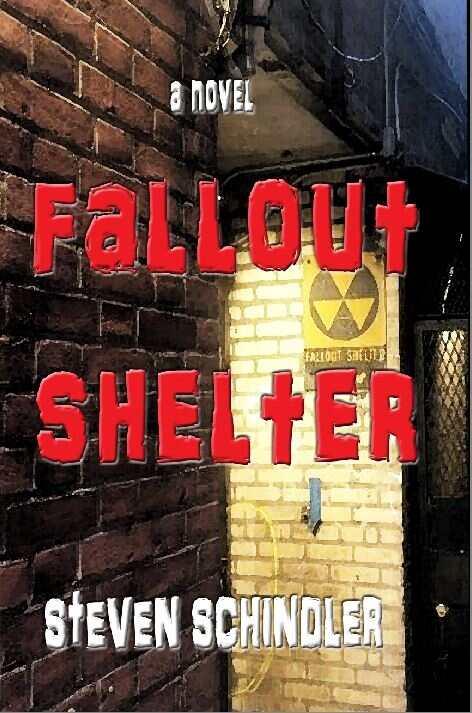
Fallout Shelter
Set during a turbulent era, Fallout Shelter follows as three Catholic men come of age—and as their friendships change.
In Steven Schindler’s novel Fallout Shelter, three boys from the Bronx stick together through their Catholic educations, career choices, and crises of faith.
Chili, Mikey, and Angel met at St. Gall’s parish school in the 1970s. While his father drowns his sorrow in beer and manual labor, Chili is determined to fulfill his dead mother’s wishes that he care for his younger brother, Jamie, and become a priest. Mikey’s family is also working class. Angel seeks a lucrative career in line with his monied family’s traditions.
After school, the three meet in a retired fallout shelter to drink, smoke, and plan shenanigans. As they enter different high schools, they begin to diverge. Angel and Mikey tease Chili over his religiosity. A high school graduation road trip to California ends in disaster. Chili comes home early, disgusted by the San Francisco commune they visited, and learns that his brother is missing and his father is worse off. Chili starts seminary feeling ostracized from his former friends—until a scandal implicates his family.
The book’s three parts each focus on distinct kinds of tumult. In the first, puberty besets the friends and their classmates. School pranks, class outings, and after-school jobs reveal the boys’ emerging personalities, establishing a high-energy pace. Hippie culture divides the gang in the second part, as it does culture at large. Post–Vatican II, long-haired, friendly priests collide with straitlaced, strict ones. Peep shows, orgies, and secret meetings with priests mark these shadowy transitions. In the book’s third part, the men confront their former beliefs with maturity, seeking redemption in their vocational paths—Chili in the priesthood, Mikey in law enforcement, and Angel as a lawyer. The church scandal that Chili takes on, with his friends’ help, is harrowing.
Conversations between the trio are used to chart these changes. Their teenage banter gives way to hurtful bullying; inner monologues fill the spaces between their conversations. As they grow, the men determine their stances on sensitive topics, including around sexuality and religion. They support each other as they find their voices. In contrast, the book’s women are underdeveloped—often covered most in terms of their looks. An alter guild leader, who pushes the story in a positive direction, proves to be an important exception. Later, courtroom exchanges and confrontations overtake the previously intimate tale.
Fallout Shelter is a coming-of-age novel in which men help one another to make a difference.
Reviewed by
Mari Carlson
Disclosure: This article is not an endorsement, but a review. The publisher of this book provided free copies of the book and paid a small fee to have their book reviewed by a professional reviewer. Foreword Reviews and Clarion Reviews make no guarantee that the publisher will receive a positive review. Foreword Magazine, Inc. is disclosing this in accordance with the Federal Trade Commission’s 16 CFR, Part 255.
